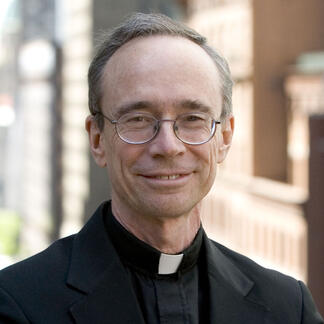Voices

Thomas J. Reese, S.J., is a senior analyst for Religion News Service. Previously he was a columnist at The National Catholic Reporter (2015-17) and an associate editor (1978-85) and editor in chief (1998-2005) of America.
Politics & SocietyNews
Noted Vatican commentator Thomas Reese reflects on the sixth-year anniversary of Pope Francis' election to the Chair of Peter, and cites the good, the bad, and the merciful aspects of the pontificate.
FaithNews
(RNS) — “Grossly misleading, irresponsible, inaccurate, and unjust” is how former New York Times religion reporter Peter Steinfels describes last August’s Pennsylvania grand jury report in its sweeping accusation that Catholic bishops refused to protect children from sexual abuse.
FaithNews Analysis
Cardinal Donald Wuerl of Washington, D.C., has done the right thing.
FaithNews Analysis
Many Catholic bishops and priests are frustrated by the continued coverage of the sex abuse crisis in the media. They believe they have fixed the problem and the church should be able to move on.
FaithLast Take
A Catholic priest should not have a woman in his bedroom at night, but I have become quite dependent on Alexa.
FaithShort Take
He just doesn’t get it when it comes to victims of abuse.
Politics & SocietyShort Take
No matter what you think of people coming into the country illegally, one can hardly blame children brought by their parents.
FaithExplainer
An interview with David Collins, S.J. about persecution and execution of witches.
FaithLast Take
It is time for the laity to speak out and act like true disciples of Christ in spreading the joy of the Gospel.
Religion in Vietnam today looks markedly different than it did 40 years ago.










